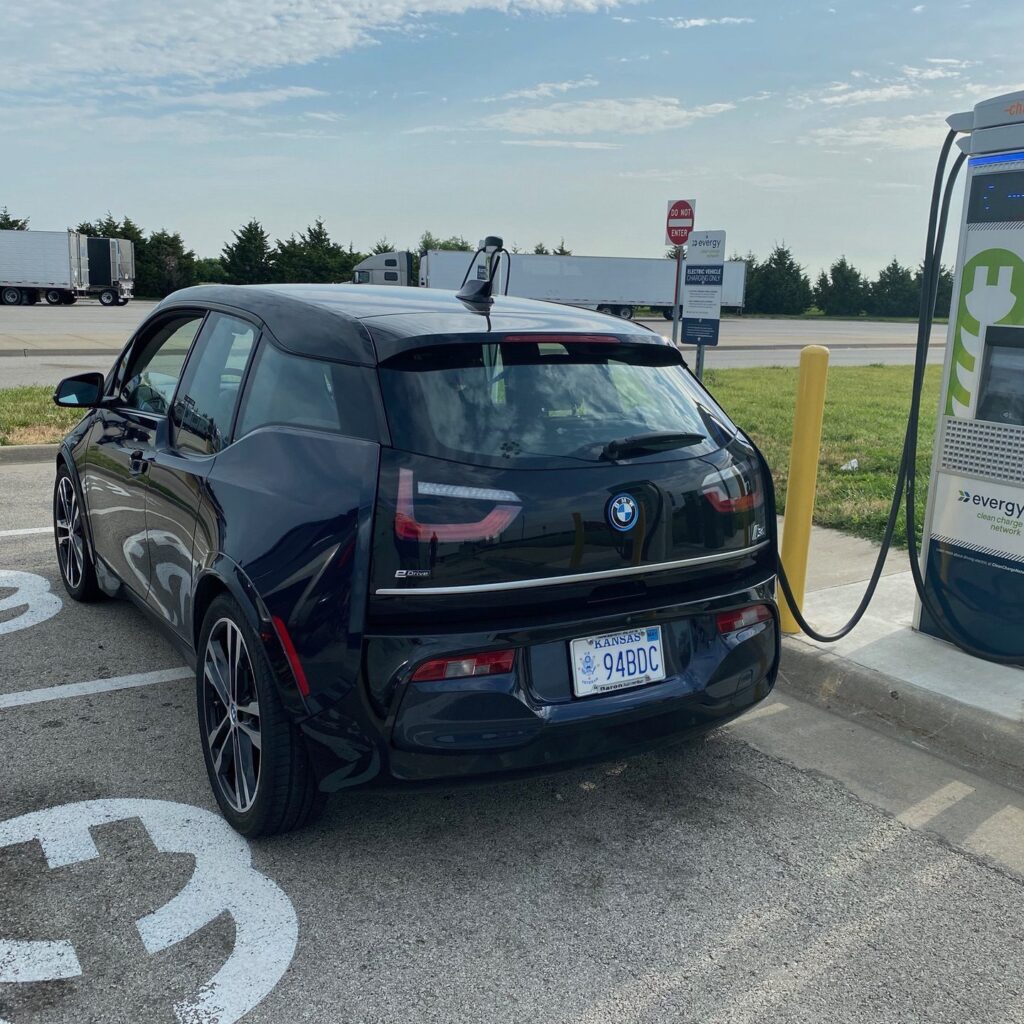Common knowledge tells us that electricity is cheaper than gas, which makes electric vehicles cheaper to run than internal combustion engine (ICE) vehicles. However, prices of electricity are rising, too, though not nearly as much as the price of gas. To figure out just how much cheaper electric vehicles are to run than gasoline-powered cars, CNBC recently put together a few charts to show the differences in cost of adding 100 miles of range to both EVs and ICE vehicles.
There are three pricing charts from three different locations; a national average, the cost in Boston, and the cost in San Francisco. The national average is to get a baseline cost analysis of electricity versus gas, while the latter two cities are used because their cost of electricity is higher, due to their higher rates of EV sales. These charts are based on EPA figures, which state that the average internal combustion engine vehicle in 2020 returned 25.7 mpg. Which would mean that, with an average vehicle, driving 100 miles requires about 3.9 gallons of gasoline. The baseline national average cost of driving 100 miles, based on that 3.9 mpg, has ranged from around $8.60 in 2019 to around $14.00 in 2022.
According to the EPA, the average electric vehicle sold in 2020 returned 97 MPGe (miles per gallon equivalent). The EPA’s MPGe rating is based on how far an electric vehicle can drive on 33.7 kWh, as that’s apparently the battery energy equivalent of one gallon of gasoline. Which means that, using the EPA’s 97 MPGe figure, the average electric vehicle requires 34.7 kWh of electricity to drive 100 miles. At that rate, the average national cost to drive an EV 100 miles ranged from around $4.25 in 2019 to $4.60 in 2022.
The data shows that the cost of charging an electric vehicle is drastically cheaper than the cost of refueling a gasoline car. Even in Boston and San Francisco, where the cost of electricity is higher, electric cars still win out. There was only one point, in Boston, in which both the cost of electricity and gasoline were the around the same and that was in the early months of 2020, during the peak of pandemic lockdown, when most Americans were home using electricity, not driving.
Read: What’s more important in an electric vehicle – Range or Charging Speed?
It’s clear that electric vehicles are significantly cheaper to charge and run than gasoline cars, especially at the moment (although gas prices will likely come down in the coming months). That cost scale tips further into EVs favor if you charge at home with solar.
Of course, one could argue that the entry cost of electric cars is higher than gasoline vehicles, which then tips the scale back toward ICE vehicles. However, the cost of EVs is coming down, as more and more automakers are offering affordable electric vehicles, such as Hyundai and Volkswagen. And when it comes to brands like BMW, in which many of its electric vehicles are priced similarly to their internal combustion combustion counterparts, the entry cost argument weakens.
Read: How to charge my electric car – The Ultimate Guide
Will electricity become more expensive as EVs become more and more common and ICE vehicles become rarer? Possibly. However, Jeffries analyst David Kelley calculated that EVs are around $4,700 cheaper to run than ICE cars, over their lifetimes, and that gap is going to increase even further over the next couple of years. At the moment, EVs are cheaper to run, the numbers don’t lie. Which makes switching to electrification more and more attractive, especially as gas prices continue to soar.
[Source: CNBC]

